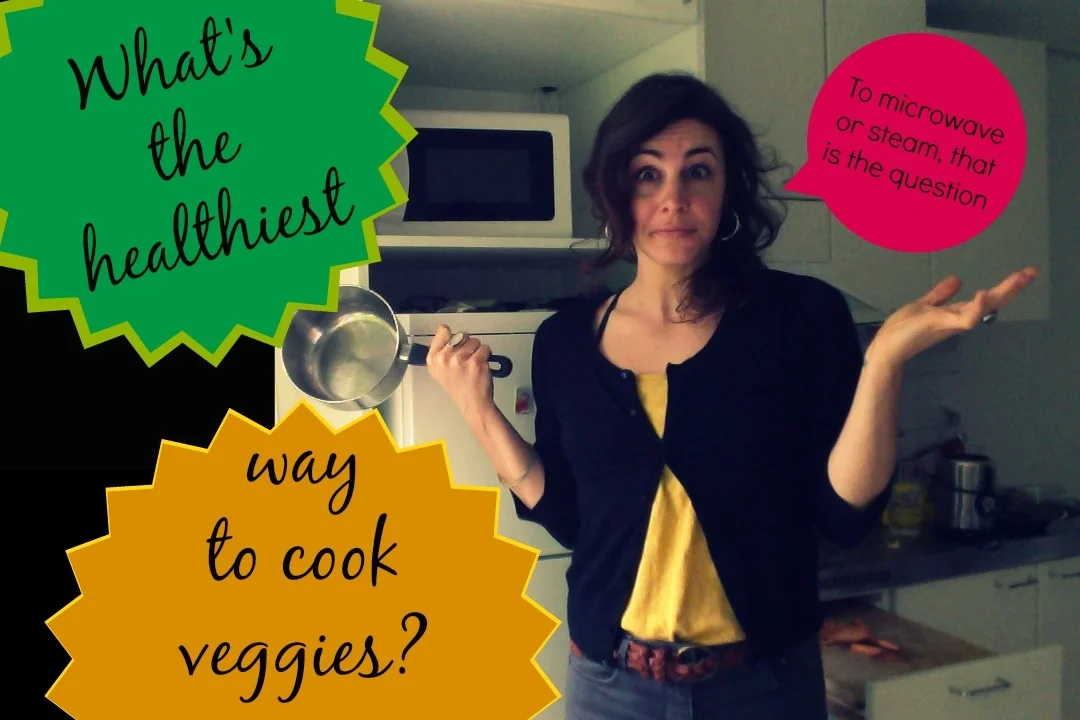Plant-Based Diets + Weight Loss: Findings from my Thesis
/Today I'm celebrating! Why? This week, I graduated with a Master's Degree in Public Health Nutrition with a focus in sustainable development. Woo hoo!
If you didn't know, I've been going to school abroad for the last 2 years. I've been living in Kuopio, Finland studying at the University of Eastern Finland.
Education is free in Finland (yes, even if you aren't a resident) and I've always been interested in the greater equality and social welfare programs of the Scandinavian countries. Plus, the nature in Finland is amazing! So, off I went in 2012 and now I'm finally done!
The biggest and last assignment of graduate school was my thesis -- an intense and very large research paper (mine came out to be 70 pages).
I want to share with you a few results from my thesis... I think the weight loss results will make you pretty happy ;)
What did I research?
I did a systematic review for plant-based controlled trials.
This simply means that I searched a data base that holds scientific publications (PubMed) for studies that put a group of people on a whole food, plant-based (WFPB) diet (the intervention group) and compared them to another group (the control group).
The WFPB diet consisted of fruits, veggies, whole-grains and legumes and participants had to be able to eat as much as they wanted and couldn't be forced to restrict portion sizes or calories.
I searched for studies on participants with heart disease, type 2 diabetes or overweight individuals. The search yielded 6 controlled, intervention studies.
What were the results?
It turns out that in 5 of the 6 studies, the WFPB group lost significantly more weight than the control groups. When I say significantly more, this means the findings are highly likely to be true -- from the diet, and not some random fluke.
The WFPB groups lost signifcnalty more weight compared to the control groups which included... usual care recommended dy doctors, a traditional low-fat diet, the National Choleterol Education Program's Step II Diet and the standard American diet.
In the 1 study where the WFPB group didn't find a statistically significant amount of weight loss, the WFPB group was compared to participants forced to restrict calorie intake and restrict portion sizes -- the diabetes diet recommended by the American Diabetes Association (ADA). The WFPB group, on the other hand, could eat as much as they wanted of whole, plant foods.
The WFPB group did actually lose more weight than the ADA group. The results just didn't meet statistical significance.
Weight loss ranged from 23 lbs at 1 year to 13 lbs lost in 14 weeks in these studies. The amazing thing and my favorite part about these results is that participants ate whenever they wanted and ate until full satisfaction. No change in exercise were made in 5 of the 6 studies during the intervention period.
How do plant-based diet cause weight loss?
In short, plant foods are generally naturally lower in calories and lower in fat than refined foods and animal products. Additionally, plant foods are high in fiber and bulk making them filling. Feeling full is important because it forces us to stop eating.
Other findings
The plant-based groups also eliminated and reduced medications more than the control groups. Other significant results were found, however, I can't cover them all in this blog. If you're interested in reviewing my thesis, you can find it here.
Take Control Now -- Tell me what you think!
I really want to know what you think about my results. Type a comment by clicking the 'comments' button below.
Did you know there were documented studies showing a WFPB diet is highly-effective in causing weight loss? Are you surprised or frustrated that the WFPB groups performed better than mainstream recommended diets? Did you know this information existed?
Tell me anything you want to express and I will respond to your comment.
Thanks so much for watching (and reading) today's episode of Take Control Tuesdays. Get educated, get support and take control. Yes you CAN, get the healthy body you deserve!



